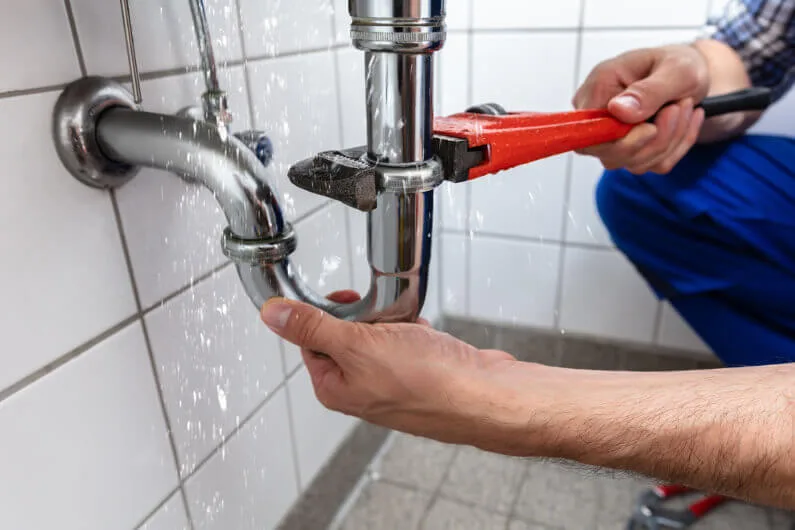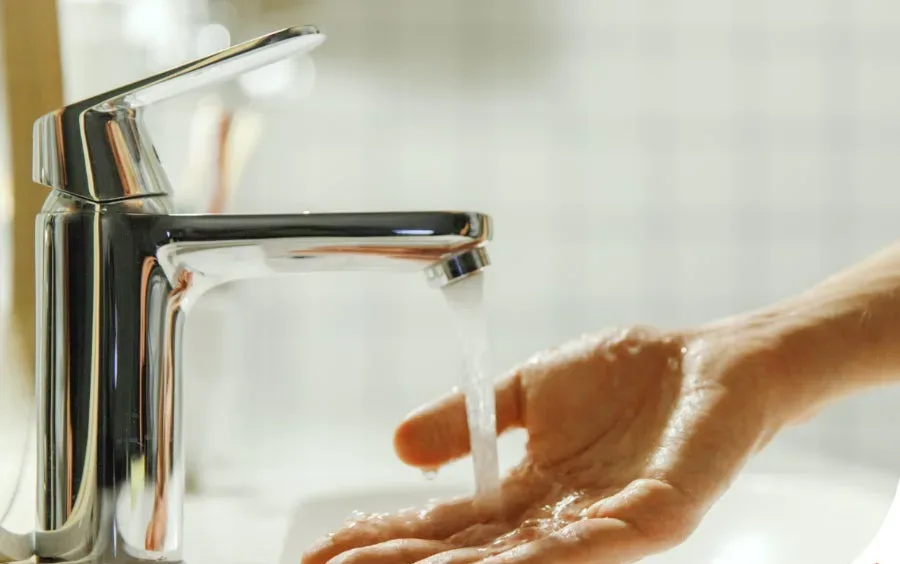You may underestimate the integral role clean water systems play in women’s health. Lack of access to clean water significantly impacts not only their physical wellness, but also their psychological state.
Thriving in such conditions requires inventive methods for water treatment and sanitation. And that’s precisely why initiatives like Dan’s Plumbing fundraising initiative matter—they aim to raise funds to provide clean water solutions to those who cannot afford them.
Implementing robust clean water systems not only improves women’s current health scenario but empowers them for a healthier future. You can contribute significantly to this cause and change their lives forever.
The Role of Water in Women’s Health
Water plays a pivotal role in maintaining overall health, including women’s health. Its importance can’t be understated as it helps in nutrients absorption, detoxification, and hydration.
What is the Importance of Clean Water?
Clean water is essential for eliminating toxins from the body. It supports digestion and absorbs nutrients efficiently, helping maintain overall health and vitality.
Can Dehydration Affect Female Health?
Absolutely! Dehydration may cause fatigue, migraines, and impact kidney function. It’s vital for women to stay hydrated to keep their bodies functioning optimally.
Does Water Influence A Female’s Reproductive Health?
Yes, drinking ample water can alleviate menstrual discomforts like cramps and bloating. It also promotes healthy pregnancy and lactation by aiding in nutrient absorption.
What are Safe Drinking Water Sources?
Safe drinking water sources include filtered tap water, bottled water, or water treated with purification technology. Avoid untreated surface or ground water.
To learn more about women’s health and the importance of clean water systems, visit this valuable resource from the CDC.

Health Risks of Unsafe Water
Unsafe water doesn’t merely quench thirst—it introduces a host of health risks. It is a breeding ground for harmful viruses, parasites, and bacteria.
Drinking dirty water can lead to severe gastrointestinal diseases like cholera, typhoid, and dysentery. These conditions cause intense discomfort and can be life-threatening.
The consumption of polluted water also invites non-communicable diseases. For instance, exposure to chemical pollutants can provoke renal disorders and cardiovascular issues.
For women particularly, unclean water has been associated with reproductive problems. Frequent exposure to harmful agents in water could potentially compromise fertility.
- Cholera: An infection caused by consuming contaminated water or food. Leads to severe dehydration and diarrhea.
- Typhoid: A deadly illness transmitted through tainted water or food. Symptoms include high fever, headache, and fatigue.
- Dysentery: This bacterial infection leads to frequent watery stools, which may contain blood and mucus.
- Renal disorders: Long-term exposure to chemical pollutants in water can cause kidney damages.
- Reproductive problems: Unhealthy aquatic environments could impact a woman’s reproductive health. Studies have observed a decline in fertility rates among women consuming contaminated water.
Besides posing immediate health threats, unsafe water also hinders communities’ socio-economic development. Women often spend precious hours fetching clean water instead of participating in income-generating activities.
The key is to understand the significance of clean drinking water and implement effective solutions at personal and community levels—ensuring safe water systems plays a crucial role here.
Waterborne Diseases & Women
Women’s health is significantly impacted when they lack access to clean water. Waterborne diseases they may contract can pose considerable threats to their wellbeing.
The Cholera Threat
Consider cholera, a diarrheal disease caused by contaminated water. This disease can drastically dehydrate women, causing severe health complications or even death.
Frequent exposure to unclean water sources increases the risk of this infection, making preventative measures like proper hygiene and sanitation critical.
Dangers of Dysentery
Bacterial dysentery, another waterborne illness, leads to severe gastroenteric distress. For women who are pregnant, this can lead to detrimental consequences for both mother and child.
Improving water quality and education about safe water usage can help women avoid this pathogen and its potential harmful effects.
Giardiasis and Women
Giardiasis, a global cause of diarrheal illness, often comes from unclean water. It can drain women’s energy and hinder daily routines due to gastrointestinal upset.
This protozoan parasite prioritizes the need for reliable filtration systems and regular inspection of local water sources. Access to treated water is vital.
Impact on Maternal Health
Access to clean water significantly affects maternal health. Unsafe water compromises hygiene during childbirth, increasing infection risks.
Prenatal Complications
Lack of clean water can result in poor sanitation that’s linked to prenatal complications. It triggers diseases like toxoplasmosis and hepatitis E.
Diseases not only affect maternal health but also place unborn babies at risk for congenital disorders. Clean water is crucial to healthy pregnancies.
Childbirth Risks
Unsafe water during childbirth can cause infections, endangering both mother and baby. Proper sanitation reduces the likelihood of postpartum morbidity.
Moreover, clean hospitals provide a safer environment for both childbirth and postpartum recovery, promoting overall maternal wellness.
Breastfeeding Concerns
Water quality affects breastfeeding mothers too. Contaminated water can carry diseases infecting not just the mother but the breastfeeding child too.
The availability of clean water ensures disease-free breastfeeding, which is vital for the baby’s growth and development in their initial months.

Water Access and Hygiene
Treating water isn’t enough, proper sanitation facilities are critical for health. Many women lack these services, leading to disease and often death.
You need to understand the link between access to clean water and women’s health. Lack of clean water can lead to several health issues for women.
In many areas, fetching water falls on women, wasting their productive time. This routine not only puts them at physical risk but also subjects them to gender violence.
It’s essential to work towards improving water access, cleanliness and hygiene. Equitable, safe water solutions can uplift overall community health and empower women socioeconomically.
| Factor | Problem | Solution |
| Access to Clean Water | Poor Hygiene | Installing better sanitation facilities |
| Fetching Water | Physical Risk & Women’s Productive Time Loss | Creating closer, safer sources |
| Lack of Sanitation Facilities | Disease Spread | Providing proper sanitation services |
| Gender Violence | Risk during Water Fetching | Closer water sources are crucial. |
You can learn more about these factors from the research conducted by the Maternal Health Task Force, found on their website.
Change is necessary for womankind’s well-being. Clean water and sanitation services are human rights, not privileges, and need to be regarded as such by everyone.
Community Solutions for Clean Water
Access to clean water is a fundamental right; yet, many communities across the globe struggle with this basic necessity.
Safe and clean water is essential for maintaining women’s health in these regions. There are solutions that can be implemented on a community level.
- Rainwater harvesting: This ancient practice collects and stores rainwater for domestic use, reducing dependency on other water sources.
- Water treatment facilities: Developing local facilities can efficiently treat water, reducing contaminants and disease spread.
- Water education programs: Through learning, individuals comprehend the importance of clean water and how to adopt safe practices at home.
- Maintenance of water infrastructure: Ensuring existing systems function effectively helps prevent contamination and loss of resources.
The ways your community approaches water sourcing matters for your health. Consider the benefits each solution can provide.
Incorporating these clean water solutions into everyday life enables them to become more sustainable and beneficial to everyone’s wellbeing.
Technological Advances in Water Purification
You might wonder why maintaining clean and fresh water is crucial for women’s health. Keep reading to unlock the facts linking clean water and women’s wellness.
Waterborne diseases pose severe risks to our health, primarily affecting women. With technological advancements, it has become feasible to curb these threats effectively.
- Microfiltration: This technique strains water through tiny pores, ensuring unwanted bacteria and microorganisms don’t make their way into your drinking cup.
- Reverse Osmosis: Here, water passes through a semipermeable membrane under pressure. It effectively catches pollutants and provides you pure and safe drinkable water.
- Ultraviolet (UV) treatment: It is a purely physical process where UV light destroys harmful pathogens by tampering their genetic core (DNA).
- Activated carbon filtering: This process uses carbon granules acting like a sponge to absorb impurities and contaminants from your water supply.
The importance of clean water systems cannot be overstated for ensuring women’s health. It keeps them safe from various diseases while boosting overall wellness.
You now have answers that reinforce the significance of clean water for women’s health. The role of technology has been pivotal in this evolution.
A step towards technological interventions in purifying water is a stride towards a healthier society, ensuring women’s vitality. Clean water signifies sound health!
Women’s Advocacy for Clean Water
Ensuring access to clean water is central to women’s health. They, historically, have spearheaded movements for better water systems, advocating for community health and hygiene.
The Personal Impact
Clean water directly affects women’s personal hygiene – preventing infections, promoting optimal menstrual health, and contributing to overall well-being and dignity.
Their daily lives are impacted too. Access to clean water can reduce time spent on collecting water resources, increasing opportunities for education and employment.
The Wider Influence
Women’s advocacy for clean water doesn’t only benefit them. Communities thrive when everyone has improved access to pure water, promoting general public health.
Moreover, the ripple effect of their voices can encourage governments and organizations globally to prioritize clean water systems in resource planning and allocation.
Their Role in Education
Women often find themselves educating their communities about the importance of clean water systems, thanks to their intimate understanding of its health implications.
This grassroots level education can stir collective action for improved water sanitation infrastructure, further emphasizing women’s crucial role in this issue.
Wrap-Up Thoughts
Your health, especially as a woman, is significantly shaped by access to clean water. Waterborne illnesses and hygiene matter to maternal wellbeing. Investing in clean water systems, like products from Dan’s Plumbing, can create healthier communities.


